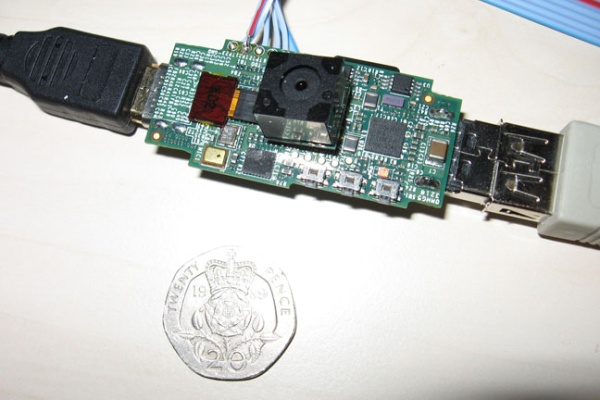Raspberry Pi is a £15 or $25 computer the size of a typical USB stick. Created by games developer David Braben, the whole computer is on a tiny circuit board, with a USB port on one end (for plugging in a keyboard) and an HDMI port on the other (for plugging in a monitor or TV).
Braben and other enthusiasts are working to turn the current sketchy prototype into a product that could be handed to every child in the UK. They believe that what today's schoolchildren learn in class leaves them uninspired and ignorant about the way computers work and does not encourage creativity, according to the BBC.
The Raspberry Pi Foundation is a registered charity in the UK which exists to promote the study of Computer Science and related topics. The organization's goal is to develop, manufacture, and distribute an ultra-low-cost computer. From this prototype, we can safely say "so far, so good."

Rasberry Pi is supposed to be a working computer that runs Linux and, like the kit computers of the 1970s and 1980s, encourages users to tinker and learn. While the computer was created to teach computer programming to children, the foundation expects it to have many other applications both in the developed and the developing world.
So what's left? The volunteer team still has to produce a better prototype, show that it really can be manufactured for the low price, and then convince the educational establishment to support it. We sincerely wish them good luck!
Braben and other enthusiasts are working to turn the current sketchy prototype into a product that could be handed to every child in the UK. They believe that what today's schoolchildren learn in class leaves them uninspired and ignorant about the way computers work and does not encourage creativity, according to the BBC.
The Raspberry Pi Foundation is a registered charity in the UK which exists to promote the study of Computer Science and related topics. The organization's goal is to develop, manufacture, and distribute an ultra-low-cost computer. From this prototype, we can safely say "so far, so good."

So what's left? The volunteer team still has to produce a better prototype, show that it really can be manufactured for the low price, and then convince the educational establishment to support it. We sincerely wish them good luck!












